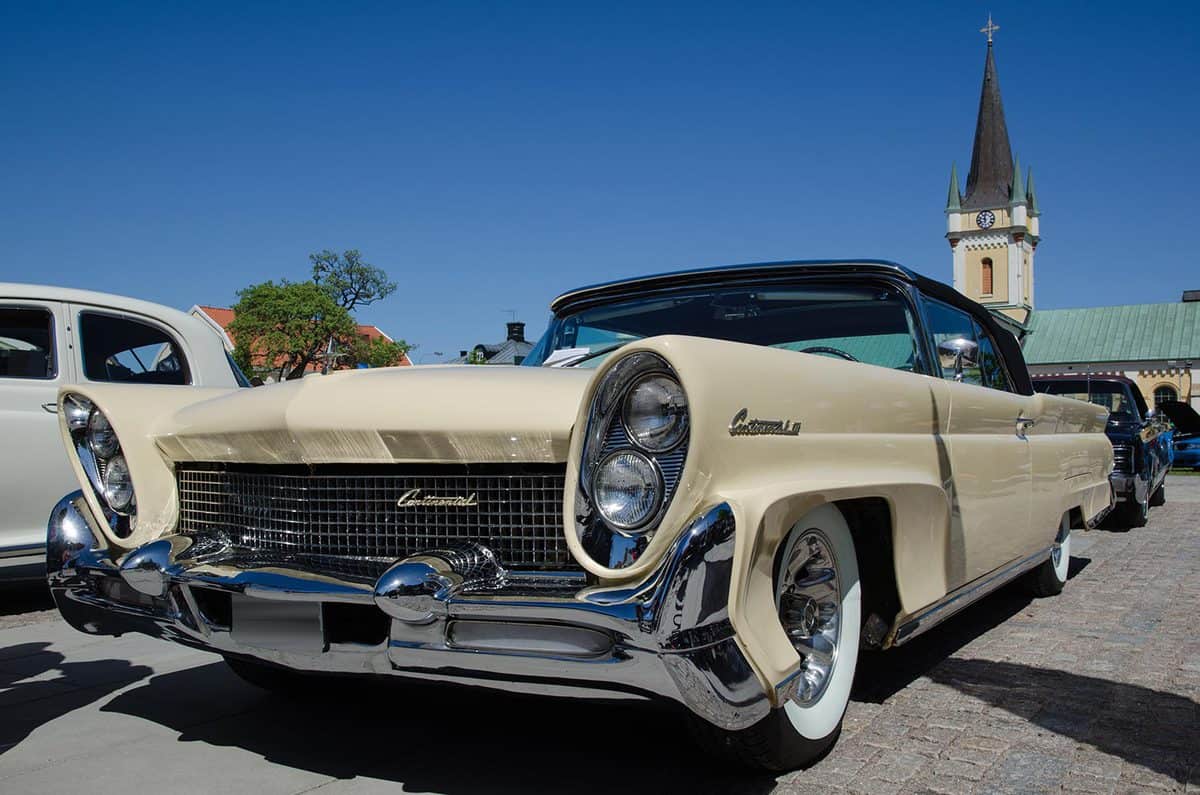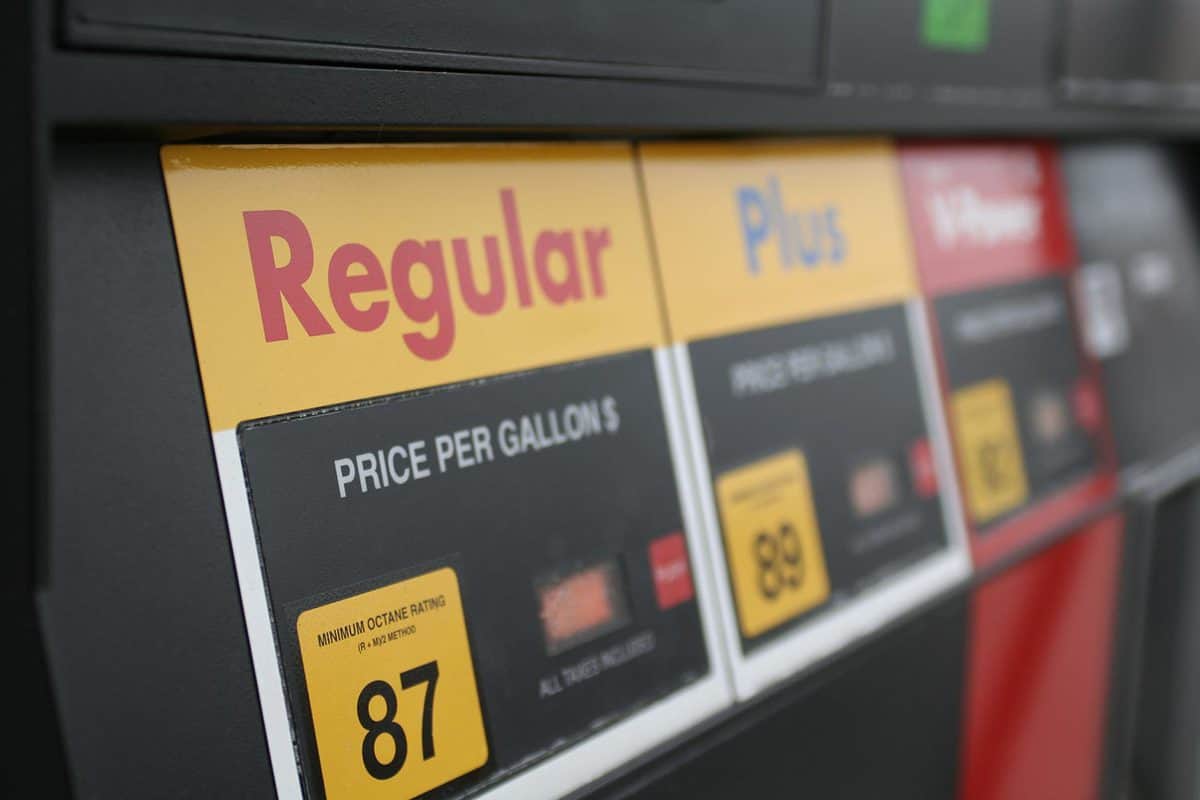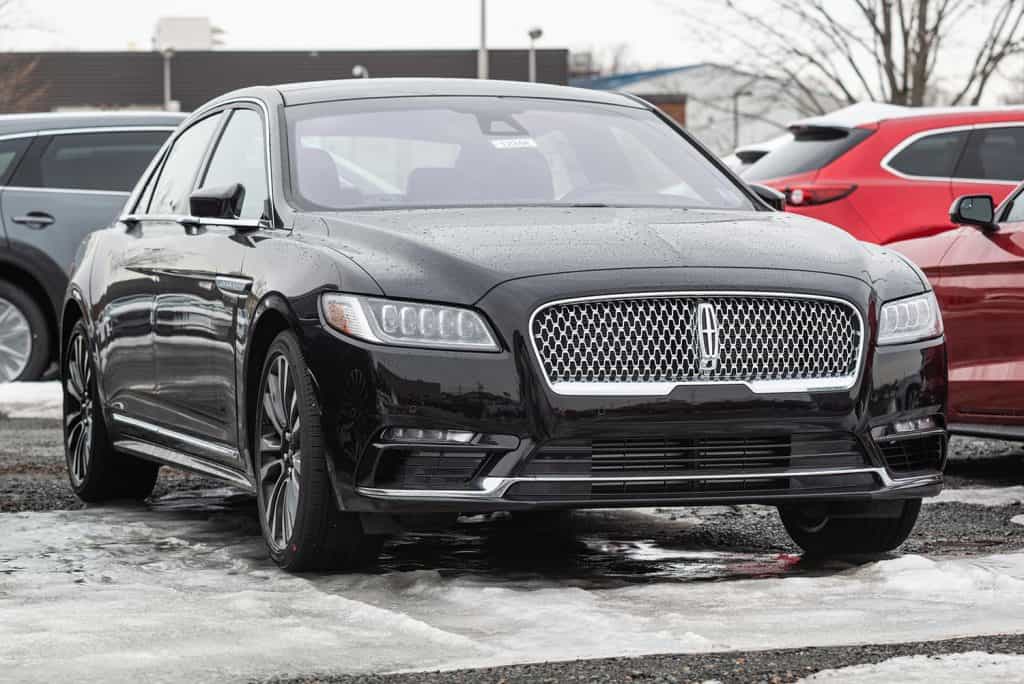The Lincoln Continental is back, and this time with some serious horsepower. However, does that mean it needs premium gas to run right? We have done the research so that you can find out!
Depending on what engine is under the hood of your Lincoln Continental will determine whether or not it requires premium or regular gas. Lincoln recommends using premium gas if you own either the 2.7 L twin-turbocharged or the 3.0 L twin-turbocharged. However, if you own the 3.7 L naturally aspirated engine, you will be fine using 87 octane gas.
Like oil type, using the correct gas is important for the health of your vehicle's engine. This article will discuss why specific Lincoln Continental engines need premium fuel while others don't. In addition, we will answer other frequently asked questions about the Lincoln Continental, so read on!

Does The Lincoln Continental Require Premium Gas?
The Lincoln Continental isn't what it used to be. The once old-fashioned car is now a full-size sedan with a big pep to its step. Now, consumers can choose between three different engine models for the recent model years.
First, there is the 3.7 L naturally aspirated engine. This is the base model for all Lincoln Continentals, and it doesn't require premium gas to run.
Second, there is the 2.7 L twin-turbocharged engine which does need premium fuel. Finally, the 3.0 L twin-turbocharged engine also needs premium fuel. We will discuss these further in the article.
The 2.7 L twin-turbocharged and 3.0 L twin-turbocharged engines require premium-grade gasoline because they are turbocharged engines that need more than regular gas can offer. These engines will run best with premium fuel for better performance and power output.
Premium and regular gas should not be used interchangeably. Using premium fuel in an engine that does not require it can cause damage to the fuel system, including injectors and valves. On the other hand, regular gas will not provide enough octane, which is essential for high-performance turbocharged engines.
The reason turbocharged vehicles need premium fuel is due to them producing compression. Regular-grade gasoline will not combust appropriately in these situations. As a result, the engine becomes extremely sensitive to temperature changes and might run hot or excessively lean, leading to damage quickly.
While premium fuel does come with a high price point, it is worth it if you choose to pay money for the turbocharged engines in the Lincoln Continental. All in all, it is best to follow the manual's recommendations for your car when it comes to filling your Lincoln Continental with gas.

Can you use regular gas in a car that requires premium?
Technically, you can use regular gas in a car that requires premium but is not recommended. However, if you do, you have a high risk of causing damage to the vehicle. Using regular gas can cause engine knock and cause damage to the cylinder walls, leading to piston damage.

In addition, if your vehicle is under factory warranty still, then you could potentially void the warranty. Therefore, paying close attention to what your owner's manual says on the fuel recommendation is essential.
Some owner's manuals will recommend premium fuel but state that regular gas is satisfactory. However, high-performance sports cars may have a strict warning on this matter, stating only to use premium fuel.
If you make the mistake of putting regular gas in a premium car, then don't panic. You aren't going to have engine problems instantly. However, if you do this continuously, you will raise the risk of damages to the engine.
In this situation, the best thing to do is to drive the vehicle until the gas tank is close to empty. Once it is, refill the gas tank with premium fuel.
If you are still unsure, it is essential to contact the dealer and to talk to someone in the service shops who have expertise in your vehicle.
Is the Lincoln Continental a good car?

With its spacious interior, elegant styling, smooth handling, and luxurious comfort, the Lincoln Continental is a great car to own. While it might cost you more than other brands due to its powerful engine, you get what you pay for. The sedan seats five passengers with ease and is packed with many features.
As far as reliability goes, the Lincoln Continental receives a 4 out of 5. This is a score that consumers shouldn't be afraid of. In addition, it has one of the lowest costs of ownership compared to its competitors.
However, if you consider the vehicle, you should still test drive it first. While it may be great for others, it may not be the best for you. In addition, if you are looking at a used Lincoln Continental, always check a CarFax first. This will help you see the maintenance history and any accidents that the previous owner has been involved in.
How many miles does the Lincoln Continental last?
How long a Lincoln Continental will last depends on how it is treated and maintained. The older years could get to the 200,000 miles, while the newer ones could surpass that benchmark.
It is important to note that the vehicle's maintenance determines this. If you keep up with oil changes, change parts on time, and keep it clean.
Of course, there are some cases where accidents happen or neglect gets in the way of a car lasting a long time.
It is essential to look at the maintenance history and how many miles were on the vehicle when they occurred. Some things can't be avoided, but you mustn't pay too much for one with severe problems if you buy a used model.
Here are some things to do to help increase the lifespan of your Lincoln Continental:
- First, change the oil regularly, and don't wait too long between changes.
- Keep it clean inside and out to prevent rust from forming.
- Look for strange noises when you are driving to have them looked at in a timely manner. This is the sign of something going wrong.
- If you are making modifications to your vehicle, make sure that they are up to standard and won't damage the engine or other parts. While it may be fun to add on some things, it is best not to do anything if you don't know what you're doing.
What is the best year of the Lincoln Continental?
This depends on your taste as a vehicle enthusiast. If you like old-fashioned cars, then the late '50s and 60's Lincoln Continentals were well made. However, if you like newer models, 2017-2020 are great years for this luxurious vehicle.
It's not comparing apples to apples, as one is a collector car and the other is meant for daily driving. However, if you are in the market for a new vehicle for you and your family, the newer models are the best bet. They have the latest technology and safety features, which is always a plus when driving your family around.

Do the newer Lincoln Continentals have problems?
Since the new model hasn't been out for very long, few reports of problems; however, there are reports that the cabin has squeaks or rattles inside the cabin. This is quite surprising considering the price and the luxury car status.
This may be a design flaw and not something that happens to all models. However, when shopping for a used model, it is essential to keep in mind that it could have these problems.
For the price, you expect everything inside to work without any hiccups. But unfortunately, while some cars are better than others, there will always be some that slip through quality control.
Is the Lincoln Continental AWD?
The Lincoln Continental does have AWD available in its trim packages. This is handy when you live in an area that gets more snow than others.
In addition, the engines equipped with twin turbochargers benefit from the AWD from a performance standpoint. Due to the high torque, the AWD increases the handling on highways and other roads.
Final Thoughts
Whether you own a Lincoln Continental or another car, knowing what fuel efficiency to use is essential. Using the wrong fuel can damage your engine and void your manufacturer's warranty. If you are unsure what should be used, contact your local dealer for more information.
If you enjoyed this post, then you might also like:
Does The Lincoln Corsair Require Premium Gas
